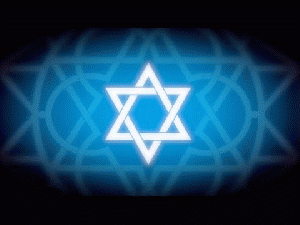Reprinted from To The Point Analyses
Part I -- Some Historical Background
From the 1920s on into the 1990s, the Zionists controlled the story-line in the West on the Israel-Palestine conflict. This meant that their version of history was the only version as far as most of the people in the West were concerned. Consequently, they had an uncontested media field to label the Palestinians and their supporters as "terrorists" -- the charge of anti-Semitism was not yet widely used. Also, as a consequence of their monopoly, the Zionists did not bother to engage in public debate.
Then, over the last 20 years the Zionists slowly lost their monopoly. In part this was due to the fact that in 1993 the PLO recognized Israel's right to exist and renounced terrorism, and in the following years many of the Arab states made or offered peace. However, the Israelis did not respond in kind. In particular they failed to respond in a fair and just way to U.S.-sponsored peace efforts. Why so?
The answer to why the Israelis did not, in good faith, take up multiple historic opportunities to make peace with the Palestinians lies in the very nature of the Zionist movement. From its beginning, and certainly from the establishment of the State of Israel, Zionism has been driven by dreams of colonial expansion and religious exclusiveness. Each of these goals is seen as part of Zionism's God-given mission, and they still prevail.
Professor David Schulman of Hebrew University, writing in the New York Review of Books (23 April 2015), describes the consequences of this situation, "the Israeli electorate is still dominated by hyper-nationalist, in some cases proto-fascist, figures. It is no way inclined to make peace. It has given a clear mandate for policies ... that will further deepen Israel's colonial venture." As a consequence, Israel's credibility with an increasing number of people in the West has eroded.
This erosion led to a relatively short period of time in the early 2000's when the Zionists attempted to counter the situation by engaging with their critics in public debate. However, the majority of time they lost. Israel's barbarous behavior on the ground, combined with the fact that their historical version of events was shown to be full of holes, condemned them to an increasingly weak defensive position. This proved to be intolerable to the Zionists, so they withdrew from the debating field. And, as they did, they began to level charges of anti-Semitism against their critics, even those who are Jewish. These accusations of the worst sort of racism have been with us ever since - which is really ironic because much of what Israel is being criticized for is its own racist, apartheid nature.
This was an important change in tactics for Israel because it opened the way to misusing Western laws to Israel's advantage. Just as the charge of terrorism has often been misused in a broad and sweeping manner (for instance, leveled against non-violent supporters of Palestinian charitable organizations), so the charge of anti-Semitism can potentially be used in an almost unlimited fashion by over-aggressive, pro-Zionist Western prosecutors against any critic of Israeli behavior.
Part II -- The Boycott Movement
(Note: You can view every article as one long page if you sign up as an Advocate Member, or higher).





